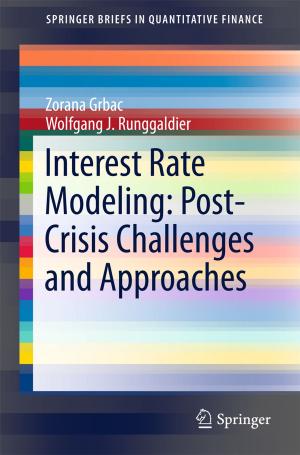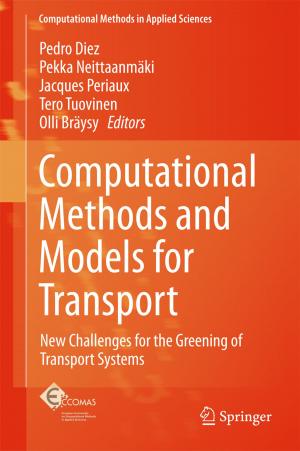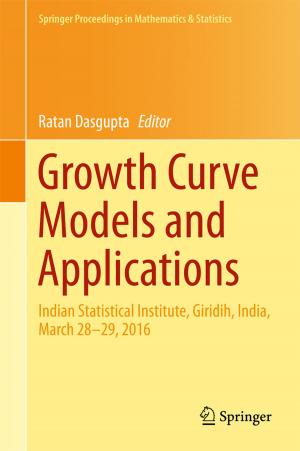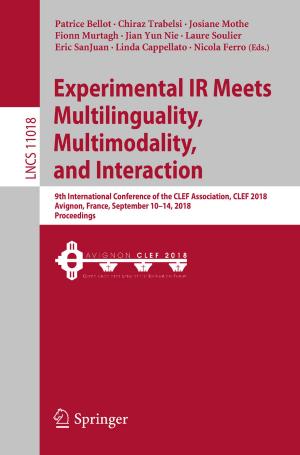Handbook of Nonverbal Assessment
Nonfiction, Health & Well Being, Psychology, Child & Adolescent, Child Development| Author: | ISBN: | 9783319506043 | |
| Publisher: | Springer International Publishing | Publication: | February 21, 2017 |
| Imprint: | Springer | Language: | English |
| Author: | |
| ISBN: | 9783319506043 |
| Publisher: | Springer International Publishing |
| Publication: | February 21, 2017 |
| Imprint: | Springer |
| Language: | English |
The second edition of this comprehensive volume presents methods for nonverbal assessment of diverse individuals, such as persons with speech or hearing deficits, limited English skills, or emotional problems. Chapters provide a contemporary context for nonverbal evaluations, accompanied by descriptions of best practices in detecting bias in cognitive tests, multicultural assessment, cross-battery assessment of nonverbal cognitive ability, and psychological and physiological influences on assessment. The book discusses nonverbal assessment of cognition and intelligence as well as related domains, such as academic skills, neurocognitive functioning, personality, and behavior issues. Guidelines for using common nonverbal assessment tools and strategies feature the most up-to-date information on administration and scoring, psychometric properties, and strengths and limitations. Best practices for testing diverse children and adults and using reliable, valid, and fair assessment instruments are emphasized throughout the book.
Featured instruments in the Handbook include:
-
The Universal Nonverbal Intelligence Test, Second Edition (UNIT2).
-
The newest version of the Leiter International Performance Scale (Leiter-3).
-
The Wechsler Nonverbal Scale of Ability (WNV).
-
The Comprehensive Test of Nonverbal Intelligence, Second Edition (CTONI-2).
-
The Test of Nonverbal Intelligence.
-
The General Ability Measure for Adults (GAMA).
The Second Edition of the Handbook of Nonverbal Assessment is a must-have resource for researchers and graduate students in school and clinical child psychology, speech and language pathology, educational technology, social work, and related disciplines as well as clinicians, professionals, and in-service educators of diverse students.
The second edition of this comprehensive volume presents methods for nonverbal assessment of diverse individuals, such as persons with speech or hearing deficits, limited English skills, or emotional problems. Chapters provide a contemporary context for nonverbal evaluations, accompanied by descriptions of best practices in detecting bias in cognitive tests, multicultural assessment, cross-battery assessment of nonverbal cognitive ability, and psychological and physiological influences on assessment. The book discusses nonverbal assessment of cognition and intelligence as well as related domains, such as academic skills, neurocognitive functioning, personality, and behavior issues. Guidelines for using common nonverbal assessment tools and strategies feature the most up-to-date information on administration and scoring, psychometric properties, and strengths and limitations. Best practices for testing diverse children and adults and using reliable, valid, and fair assessment instruments are emphasized throughout the book.
Featured instruments in the Handbook include:
-
The Universal Nonverbal Intelligence Test, Second Edition (UNIT2).
-
The newest version of the Leiter International Performance Scale (Leiter-3).
-
The Wechsler Nonverbal Scale of Ability (WNV).
-
The Comprehensive Test of Nonverbal Intelligence, Second Edition (CTONI-2).
-
The Test of Nonverbal Intelligence.
-
The General Ability Measure for Adults (GAMA).
The Second Edition of the Handbook of Nonverbal Assessment is a must-have resource for researchers and graduate students in school and clinical child psychology, speech and language pathology, educational technology, social work, and related disciplines as well as clinicians, professionals, and in-service educators of diverse students.















